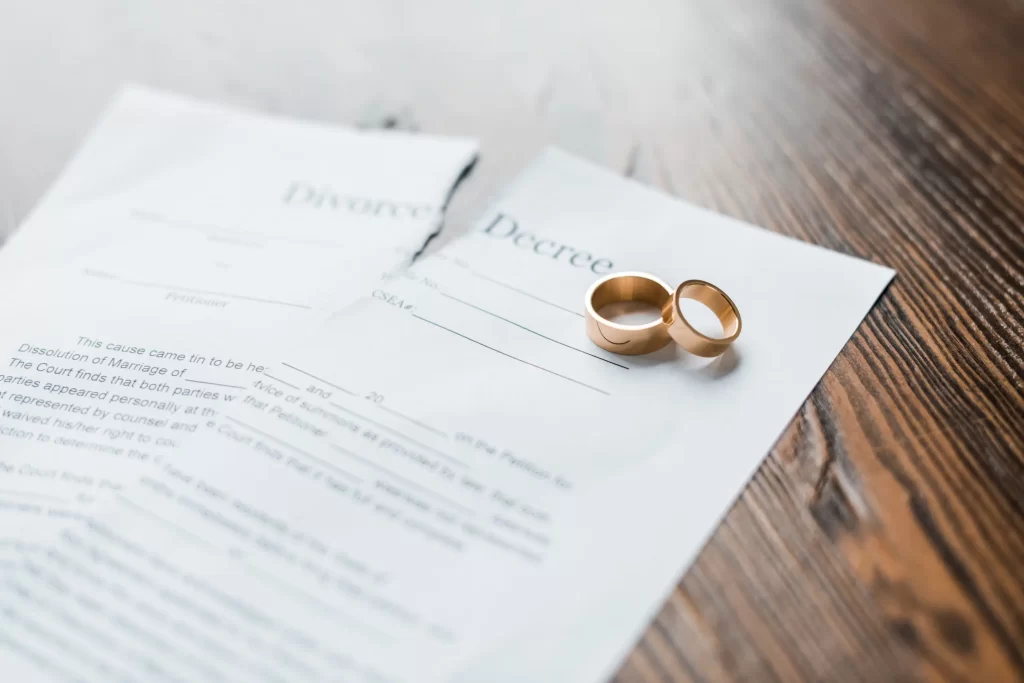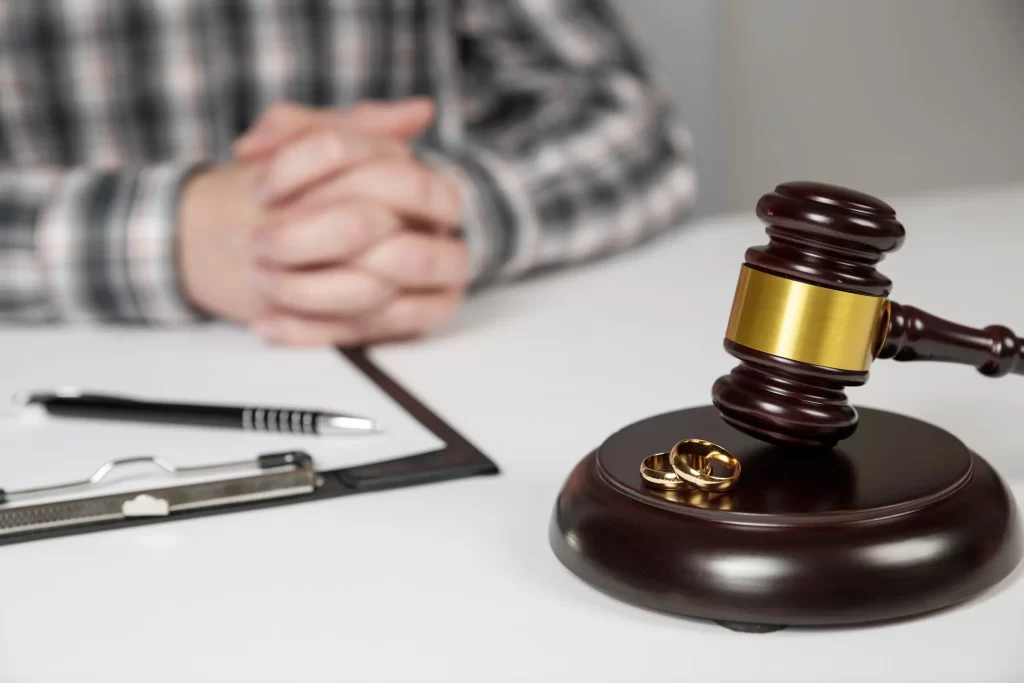
Going through a divorce in South Carolina is a challenging and emotional journey. The legal complexities of divorce proceedings can add significant stress to an already difficult time. Understanding the laws in South Carolina is the first step toward protecting your rights and securing your future. At Davis Law Group, LLC, our dedicated Charleston divorce lawyer is here to guide you with compassion and expertise. This guide will walk you through the key aspects of divorce, helping you make informed decisions for yourself and your family.
Charleston Divorce Lawyer: Key Things to Know About Divorce in South Carolina
Navigating a divorce in Charleston, requires a clear understanding of South Carolina laws and procedures. From residency rules to the grounds for divorce, each step is governed by specific state statutes that you must follow. Our experienced Charleston divorce lawyer can be your most valuable asset during this time.
The team at Davis Law Group, LLC has decades of experience helping clients through South Carolina family court systems. We provide guidance on everything from property division to child custody, ensuring you understand how the divorce process works in the state of South Carolina.

Important Facts About Divorce Law in South Carolina
In the state of South Carolina, the family law system has specific rules you must follow to end your marriage. To start divorce proceedings, you must first establish a legal reason, or “ground,” for the divorce. The most common ground is living separate and apart for one continuous year.
Alternatively, you can file based on “fault,” such as adultery or physical cruelty, which does not require a one-year separation period. The path you choose can influence the timeline of your divorce and affect outcomes related to alimony and asset division.
Understanding these foundational rules is critical. Our Charleston divorce attorney can help you determine the most appropriate grounds for your situation, prepares the necessary legal documents, and represents your interests throughout the process, ensuring every action complies with state law. This guidance is essential for navigating the complexities of the legal system effectively.

Why Local Experience Matters for Your Case
When choosing a divorce lawyer, local experience is a significant advantage. Our divorce attorney who regularly practices in Charleston’s family courts understands the specific procedures and expectations of local judges. This familiarity can help streamline your case and avoid unnecessary delays. At Davis Law Group, LLC, our Charleston divorce lawyer has many years of experience in the local legal community.
This local insight allows us to anticipate potential challenges and tailor our strategies accordingly. We have established relationships within the legal system, which can facilitate smoother negotiations and procedural matters. This knowledge helps us advocate more effectively on your behalf.
Residency Requirements for Divorce
Before you can file for divorce in South Carolina, you must satisfy the state’s residency requirements. These rules are in place to ensure that the family court has the proper jurisdiction to handle your case. Failing to meet these criteria can result in your case being dismissed.
Understanding whether you qualify is an important first step. The requirements vary depending on whether both you and your spouse live in the state. Consulting with our Charleston divorce attorney can clarify your eligibility and prevent any missteps in the filing process.
What Are the South Carolina Residency Rules?
South Carolina has two primary residency requirements for divorce. The first rule applies if both you and your spouse are residents of the state. In this scenario, you must have lived in South Carolina for at least three months before filing your divorce complaint. This is one of the quickest paths to establishing jurisdiction.
The second rule applies if one spouse lives out of state. If you are the one filing for divorce and your spouse lives elsewhere, you must have been a resident of South Carolina for at least one full year before you can file.
Meeting these residency requirements is a non-negotiable part of the family law process. To start the process, our Charleston divorce lawyer will first confirm your residency status. After confirming you meet the criteria, they can begin preparing the necessary paperwork to file with the court, officially initiating your divorce.

Meeting Residency Criteria for Charleston Filings
When you file for divorce in Charleston, SC, you will do so at the Charleston County Family Court. This court requires you to prove that you meet South Carolina’s residency rules before it will hear your case. This is a mandatory first step in the formal divorce process.
Our Charleston divorce lawyer at Davis Law Group, LLC will help you gather the necessary documentation to prove your residency. This might include a driver’s license, utility bills, or lease agreements that show you have lived in the state for the required period—either three months or one year, depending on your circumstances.
Properly establishing residency ensures your case starts on solid legal ground. It prevents the opposing party from challenging the court’s jurisdiction, which could cause significant delays. Our Charleston divorce lawyer ensures all preliminary requirements are met so your case can proceed as smoothly as possible.

Grounds for Divorce in South Carolina
In South Carolina, you must state a legal reason, or “ground,” for your divorce. The state recognizes both “no-fault” and “fault-based” grounds. It’s important to note that South Carolina does not recognize “legal separation” as a formal status, but an Order of Separate Maintenance and Support can address issues while you live apart.
Choosing the right ground is a strategic decision that can impact your case. A fault divorce may allow you to file sooner, but it also requires you to prove misconduct.

No-Fault Divorce: One-Year Separation Explained
The most common path to divorce in the state of South Carolina is the no-fault ground of one year of continuous separation. This means you and your spouse must have lived in separate residences without cohabitation for a full 365 days. Simply sleeping in different rooms in the same house does not meet this requirement.
Once you have been separated for one year, you can finalize your divorce without a statutory waiting period after filing. However, you don’t have to wait the full year to address important issues. You can file for an Order of Separate Maintenance and Support to resolve matters like child custody, support, and property division in the interim.
This approach allows you to establish stability for your family while you wait for the one-year separation period to conclude. It is a practical family law solution that provides structure and clarity during a transitional time.

Fault-Based Grounds: Adultery, Cruelty, and More
If you do not want to wait a full year, you can file for a fault divorce. South Carolina law recognizes several fault-based grounds, including adultery, physical cruelty, habitual drunkenness or drug abuse, and desertion. Filing on one of these grounds allows you to initiate divorce proceedings without the one-year separation.
Proving a fault-based ground can be complex. For adultery, you must show both an “inclination” and an “opportunity” for your spouse to have been unfaithful. For physical cruelty, the conduct must have created a substantial risk of death or serious bodily harm. Proving these claims often requires strong evidence.
It is important to know that a spouse found to have committed adultery is generally barred from receiving alimony. Because of the high burden of proof and potential impact on your case, it is wise to discuss the specifics of a fault divorce with our experienced Charleston family law attorney.
Filing for Divorce: The Step-by-Step Process
The formal divorce process begins with filing paperwork with the court. This is a structured legal procedure with several key steps that must be followed correctly. Working with our Charleston divorce lawyer ensures that all documents are prepared and submitted according to legal standards.
From the initial complaint to the final hearing, each phase has its own requirements. Our Charleston divorce lawyer can guide you through this journey, explaining what to expect at every turn and ensuring your rights are protected.
Preparing and Submitting the Divorce Complaint
The first official step in the divorce process is to file a Complaint for Divorce with the Family Court. This document formally states your request to end the marriage and outlines the legal grounds for your request. It is typically filed in the county where you or your spouse resides.
Along with the complaint, you will also file a Summons and other required forms. These documents initiate the divorce proceedings and officially notify the court and your spouse that a legal action has begun.
Working with our Charleston divorce lawyer ensures that these initial documents are drafted correctly and include all necessary information. We handle the preparation and submission, making sure your case starts without any procedural errors that could cause delays. This is how you start the process of filing for divorce with our Charleston divorce lawyer—by letting us manage the complex paperwork for you.

Serving Divorce Papers to Your Spouse
After filing the Complaint for Divorce, the next step is “service of process.” This means your spouse must be officially served with the divorce papers. This step is a legal requirement that ensures the other party is formally notified of the divorce proceedings.
There are several ways to serve papers, including using a professional process server or the local sheriff’s department. Your spouse may also agree to accept service voluntarily by signing an “Acceptance of Service” form. This is often a simpler and less confrontational method.
Proper service is a critical component of family law, as the court cannot proceed with the case until it is completed and documented. Our Charleston divorce lawyer manages this entire process, ensuring it is handled correctly and in compliance with South Carolina’s legal standards, allowing your case to move forward smoothly.

Discovery and Mediation in Charleston Divorce Cases
Once a divorce is filed, the next phases often involve discovery and mediation. Financial discovery is the formal process of exchanging information about assets, debts, and income. This ensures both parties have a complete picture of the marital estate before making decisions.
Many South Carolina courts require couples to attend mediation. This is an alternative to going to court where a neutral third party helps you and your spouse negotiate a settlement. It is a highly effective way to resolve disputes amicably.
What Happens During Financial Discovery?
Financial discovery is an important part of the divorce process that ensures transparency. During this phase, both parties are required to exchange detailed financial information. This allows each side to get a full and accurate understanding of all assets and debts acquired during the marriage, which is essential for fair property division.
This process involves formal requests for documents and information. Our Charleston divorce lawyer can help you gather and organize your financial records while also sending requests to your spouse. The goal is to create a complete inventory of the marital estate to ensure nothing is overlooked during the division of marital property.
Common documents exchanged during financial discovery include:
Document Type | Purpose in Discovery |
Tax Returns | Shows income history and potential hidden assets. |
Bank Statements | Verifies account balances, income deposits, and spending habits. |
Credit Card Statements | Details marital debts and lifestyle expenses. |
Property Deeds & Titles | Confirms ownership of real estate and vehicles. |
Retirement Accounts | Reveals the value of 401(k)s, pensions, and other retirement plans. |

How Mediation Can Simplify Your Divorce in Charleston, SC
Mediation is a highly encouraged alternative to a traditional court battle. In this process, you and your spouse meet with a neutral mediator who facilitates a conversation to help you reach agreements on contentious issues. It is a confidential and collaborative setting designed to find common ground.
The primary benefit of mediation is that it gives you more control over the outcome. Instead of a judge making decisions for you, you and your spouse work together to create a settlement that suits your family’s unique needs. This often leads to more creative and satisfying solutions.
Most divorce cases in South Carolina are resolved through mediation, making it a valuable part of the divorce process. Our Charleston divorce lawyer can prepare you for mediation and advocate for your interests, helping you negotiate a fair settlement while avoiding the stress and expense of a trial.
Addressing Major Issues in Divorce
Beyond officially ending the marriage, a divorce must resolve several critical issues. These include the division of assets and debts, arrangements for child custody and child support, and whether spousal support is appropriate. Each of these areas requires careful consideration.
Our divorce lawyer provides essential services by helping you navigate these major decisions. Our Charleston divorce lawyer will advocate for your rights regarding marital property and work to secure a fair arrangement that protects your financial future and the well-being of your children.
Property and Debt Division Under Equitable Distribution
South Carolina is an “equitable distribution” state, which means marital property is divided fairly, but not necessarily 50/50. Marital property includes all assets and debts you and your spouse acquired from the date of marriage until the date you file for divorce.
The court considers several factors when determining a fair division of marital property. The goal of equitable distribution is to reach a just outcome based on the specific circumstances of your marriage. Some of the factors the court evaluates include:
- The duration of the marriage
- The contributions of each spouse to the acquisition of property
- The income and earning potential of each spouse
- Any marital misconduct that may have affected the economic circumstances of the marriage
This process can be complex, especially if you have significant assets like a business or retirement accounts. Our Charleston divorce attorney can help you identify, value, and argue for a fair property division that protects your financial stability.

Navigating Spousal Support (Alimony): Eligibility and Restrictions
Spousal support, also known as alimony, is a payment one spouse makes to the other to provide financial assistance after a divorce. It is not awarded in every case. Instead, a judge determines eligibility by looking at factors like the length of the marriage, each spouse’s income, and the standard of living during the marriage.
One of the most important rules regarding alimony in South Carolina is adultery. A spouse who is proven to have committed adultery is generally not eligible to receive alimony. This is a significant restriction that can have a major financial impact on the outcome of a divorce.
Whether you are seeking alimony or may be asked to pay it, having our skilled divorce lawyer on your side is critical. Our Charleston divorce lawyer can present a strong case regarding spousal support, ensuring the final decision is fair and reflects your financial situation.

Child Custody and Child Support Determinations
When children are involved, the family court’s primary focus is always the “best interests of the child.” This principle guides all decisions related to child custody and child support. The court will determine both legal custody (decision-making authority) and physical custody (where the child lives).
Several factors are considered when making custody decisions, including:
- Each parent’s ability to provide a stable home environment
- The child’s relationship with each parent
- The child’s preference, depending on their age and maturity
Child support is calculated using the South Carolina Child Support Guidelines, which consider both parents’ incomes and the amount of time the child spends with each parent. Our Charleston divorce attorney can help you develop a comprehensive parenting plan and ensure the child support calculation is accurate and fair, protecting your children’s well-being.

Contested vs. Uncontested Divorce in South Carolina
Divorces in South Carolina can be either contested or uncontested. An uncontested divorce is one where both spouses agree on all major issues, including property division, custody, and support. This is generally a faster and less expensive path.
A contested divorce occurs when there are disagreements that require the family court to intervene. These cases often involve more complex divorce proceedings, including hearings and potentially a trial. Understanding the differences can help you prepare for the road ahead.

Advantages of an Uncontested Divorce
Choosing an uncontested divorce offers numerous benefits for couples who are able to cooperate. By agreeing on all terms of the separation, you can avoid the stress and uncertainty of having a judge make decisions for you. This collaborative approach often leads to better outcomes for the entire family.
The advantages of an uncontested divorce are significant and can set a positive tone for your post-divorce life. Key benefits include:
- Reduced Costs: Fewer legal fees and court costs.
- Faster Resolution: The process is much quicker without lengthy court battles.
- Greater Control: You and your spouse decide the terms of your settlement.
- Less Conflict: A more amicable process provides peace of mind.
Even in an uncontested divorce, it is wise to have a divorce attorney review your agreement. Our Charleston divorce attorney can ensure the terms are fair, legally sound, and protect your long-term interests, preventing future family law disputes.

What to Expect in a Contested Divorce Trial
If you and your spouse cannot reach an agreement, your case will proceed to a contested divorce trial. During a trial, both sides present their case to a family court judge, who will make the final decisions on all unresolved issues. This process is formal and follows strict rules of evidence and procedure.
In a trial, you can expect a few key events:
- Presenting Evidence: Both sides will submit documents, financial records, and other evidence to support their positions.
- Witness Testimony: You, your spouse, and other relevant witnesses may be called to testify under oath.
- Legal Arguments: A divorce attorney will make legal arguments to the judge about why your position should be favored.
A contested divorce is often emotionally draining and expensive. The outcome is entirely in the hands of the judge, which can be unpredictable. Having experienced legal representation from our Charleston divorce attorney can protect your rights during these intense divorce proceedings.

Working With a Charleston Divorce Lawyer
Partnering with a Charleston divorce lawyer is a critical step in protecting your interests. Our Charleston divorce lawyer provides not just legal representation but also guidance and support. The process typically starts with an initial consultation where you can discuss your case.
At this meeting, you can ask about their experience, their approach to cases like yours, and the potential costs involved. This is your opportunity to find a Charleston divorce lawyer you trust to handle your case.

Choosing the Right Divorce Attorney for Your Needs
When you are looking for a divorce attorney in South Carolina, it is important to find someone who is a good fit for you and your case. You need a Charleston divorce attorney with a deep understanding of state law and the local court system. Look for a divorce attorney who communicates clearly and makes you feel comfortable.
Consider these key factors when making your decision:
- Relevant Experience: Choose a divorce attorney who has vast legal experience specifically in family law.
- Client-Focused Approach: Look for a Charleston divorce attorney that prioritizes personalized strategies and listens to your goals.
- Local Reputation: A divorce attorney respected in the Charleston legal community can be a significant asset.
At Davis Law Group, LLC, our Charleston divorce attorney is dedicated to providing compassionate and effective representation. We take the time to understand your unique situation and build a strategy designed to achieve the best possible outcome for you.

What to Prepare for Your Initial Consultation with a Charleston Divorce Attorney
Your initial consultation is an important first step. To make the most of this meeting, it helps to come prepared. You should provide any relevant documents you have and be ready to discuss the details of your situation. This will help a Charleston divorce attorney get a clear picture of your case.
Gathering some basic information beforehand can make the meeting more productive. Consider bringing:
- A list of important dates (marriage, separation)
- A brief summary of your assets and debts
- Information about your and your spouse’s income
- Any existing court orders or legal documents
- A list of questions you want to ask the attorney
During the consultation, you can ask about the divorce attorney’s experience, their strategy for cases like yours, and potential costs. This meeting is your chance to decide if the Charleston divorce attorney is the right partner for you as you navigate the divorce process and the division of assets.
Frequently Asked Questions
Can I file for divorce in South Carolina without a divorce lawyer?
Yes, you can legally file for divorce in South Carolina on your own. However, the divorce proceedings are complex, and mistakes can be costly. It is highly recommended to work with a Charleston divorce lawyer to protect your rights, especially if children or significant assets are involved.
How long does the divorce process typically take in South Carolina?
The length of the divorce process in South Carolina varies widely. A no-fault divorce requires a one-year separation. An uncontested divorce can be finalized relatively quickly after that, while a contested case that goes to the family court for trial can take much longer, sometimes over a year.
Are there alternatives to going to court for divorce proceedings in South Carolina?
Yes, mediation is a popular alternative to court. It allows you and your spouse to negotiate a settlement with the help of a neutral third party. This approach is often faster, less expensive, and less stressful, providing greater peace of mind than lengthy and contentious divorce proceedings.
Are You Searching for a "Divorce Lawyer Near Me?" Contact Us Today for a Free Consultation!
If you are searching for a “divorce lawyer near me,” you don’t have to go through it alone. Our dedicated Charleston divorce lawyer at Davis Law Group, LLC is here to provide the guidance and compassionate support you need. We understand that every family’s situation is unique, and we are committed to finding personalized solutions that protect your rights and your future.
We invite you to schedule a free, confidential consultation to discuss your case. During this meeting, we can answer your questions about the divorce process, explain your legal options, and discuss how our law firm can help you achieve your goals. Contact Davis Law Group, LLC today to take the first step toward a brighter future.

